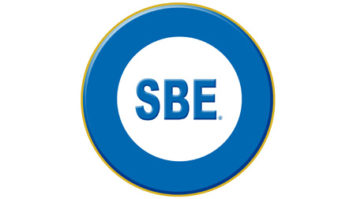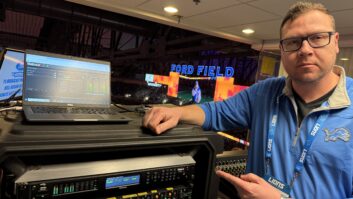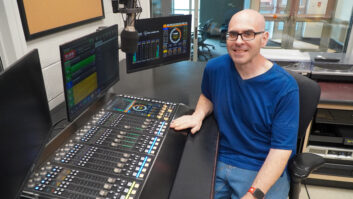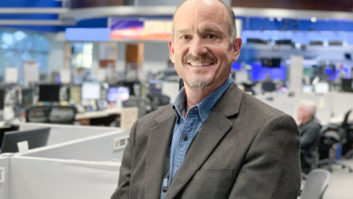A broadcast engineer defends his title in response to a long-time dispute over the term.
Is there any future in for “engineers” in this business?
Merriam-Webster’s Online Dictionary defines an engineer as follows:
en·gi·neer
Function: noun
Date: 14th century
1. a member of a military group devoted to engineering work
2. obsolete : a crafty schemer
3. a : a designer or builder of engines b : a person who is trained in or follows as a profession a branch of engineering c : a person who carries through an enterprise by skillful or artful contrivance
4. a person who runs or supervises an engine or an apparatus
Not too long ago, KMIZ(TV) in Columbia, Mo. received notice from the MissouriBoard of Architects, Professional Engineers, Professional Land Surveyors and Landscape Architects noting that a complaint was filed against the station for utilizing the term “engineer.” The complaint was filed by a retired professional engineer, and stated that the station was “deceptively representing its employees as engineers even though they were not licensed as such.”
The station was asked by the state to comply with Chapter 327 RSMo by not using the term “engineer.”
“Obviously, this is an uninformed decision on the part of the state of Missouri,” says Don Hicks, director of The Missouri Broadcasters Association.
The MBA tells me they will meet with the board to discuss this matter, as it has been an ongoing battle within the industry for many years. Furthermore, they say they are prepared to take whatever steps are necessary to remedy this situation.
For at least 80 years, the people in charge of installing, aligning and maintaining the broadcast equipment in broadcast facilities have been called engineers. One of the magazines I get is called Broadcast Engineering. And aren’t many of the people in recording studios called recording engineers, and the folks that master the records called mastering engineers?
In some cases, it would be a stretch to call the guys that sit and run the boards at radio and TV stations engineers. They are usually referred to as “operating engineers.” The guys that actually fixed the stuff were usually called “technicians,” “technical engineers” or “the real engineers.”
The certification I have from the Society of Broadcast Engineers is called a CPBE, or Certified Professional Broadcast Engineer. It took me, and many others like me, years of training and experience to learn the thousands of things a broadcast engineer needs to know. And to maintain that level of certification, I have to jump through all kinds of hoops, as in continuing my education and documenting my experience every few years. It would seem to me that I somehow qualify for the term.
I used to hold a First Class License from the Federal Communications Commission, and still hold a lifetime General Class License. Is there no value in all I had to learn to pass all those tests? And what about the IEEE (Institute of Electrical and Electronics Engineers)? Or the AES (Audio Engineering Society)? I really don’t think all the members of those fine organizations are PEs.
If the shoe fits …
My certification by the SBE, a long-standing national organization, says I’m an “engineer.” Everyone in this business calls me, and others in my field, an “engineer.” What else would I call myself?
After an 80-year history of that being the term for what I do, it’s pretty difficult to accept someone from Big Government saying, “You can’t call yourself that anymore, or we will sue you and put you in jail.” It’s disturbing to thousands of us in the field.
For official purposes pertaining to this industry, if you define yourself correctly as a “broadcast engineer,” it should be acceptable. I doubt anyone would hire a broadcast engineer to design a bridge or a hospital, but I do think we, at least the certified ones, should be qualified to design a studio or a transmitter site. We always have been, and I think our safety and reliability record speaks for itself.
By the way, wasn’t the term originally applied to the guys who ran the steam locomotives (engines) ? Seems to me you can dictate the writing of statutes any way you want if you have enough money and political power, and this just reeks of big money lobbying to me.
Please don’t misunderstand, for I have tremendous respect for the hoops through which the PEs have to jump, and the many qualifications required in obtaining that well-respected title. That is why I usually introduce a PE as “a real engineer.”
We may just have to agree to disagree on this one as far as broadcast engineers (BEs) and PEs are concerned. It will be interesting to see what the MBA and SBE do about it.
Now that I’ve written this, I suppose it’s only a matter of time until the title police come looking for me, too.
RW welcomes other points of view.






